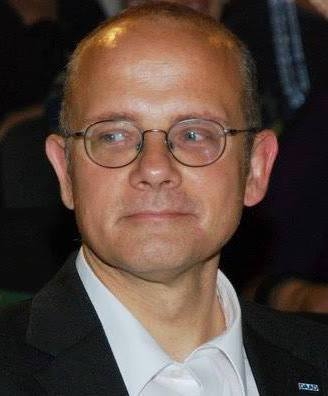Moreover, "Svoboda's" membership in the pan-European, extremely right-wing Alliance of European Nationalist Movements illustrates yet another problem. Tiahnybok's party represents a form of nationalism that, while not being marginal in all European countries, is highly stigmatized as an anachronistic and anti-democratic ideology in mainstream European politics. The elimination, or at least the containment, of this sort of nationalism has been one of the motivation factors behind the start of the post-war European integration process.
While "Svoboda" has so far remained a minor actor on national-level politics, the Freedom Party could become a source of instability of the Ukrainian state should social conflicts in the Ukraine escalate. Should there be a new Ukrainian insurrection resembling the Orange Revolution of 2004, "Svoboda" might be able to organizationally capture and ideologically impregnate the Galician part of the protest movement. In light of the unacceptability of the Freedom Party's ideology outside Galicia, this could disconnect Galician civil society from that of the rest of the Ukraine. Such a division may transform a new Ukrainian mass civic movement from an anti-regime protest into an anti-state action. A regionally and ideologically fragmented anti-governmental mass movement would not bode well for the integrity of the Ukrainian state. There are other examples of deepening divides within the Ukrainian nation as well, with regard to social, cultural, religious, and educational issues.
Against this background, the idea of European integration gains further significance. It is a factor that still unites the Ukrainian political, intellectual, economic and social elites, as well as large parts of the Ukrainian population. There are also important historical events or figures, like the Stalinist regime's genocide of the Ukrainian peasantry known as "Holodomor" (Killing by Hunger), or the universally acclaimed national poet Taras Shevchenko, that unite rather than divide Ukrainians. However, there are not that many unifying concepts concerning the present and future of the Ukraine beyond some general wish for affluence, stability and security. Rejoining Europe might be the most important and least controversial concrete idea which has wide acceptance among the elites of Western, Central and Eastern Ukraine, though somewhat less in the South.
These four dimensions of Ukraine's rapprochement with the EU are, perhaps, the most relevant: (1) anchoring Ukraine internationally, (2) guiding Ukrainian reforms, (3) impressing Russia with Ukraine's Europeanization, and (4) using the European idea to keep Ukraine united. In sum, one can hardly overestimate the political significance of Ukraine's further gradual integration into Europe.
[This article first appeared in "Harvard International Review" and is based on an interview conducted by Olena Tregub , a foreign correspondent for the Ukrainian news agency UNIAN, during the Canadian-Ukrainian Parliamentary Program's 3rd Model Ukraine Conference "Ukraine's Domestic and Foreign Affairs: Quo Vadis?" at the University of Oxford, UK, on 7 April 2011.]
(Note: You can view every article as one long page if you sign up as an Advocate Member, or higher).





